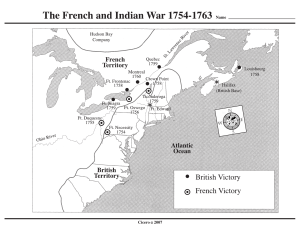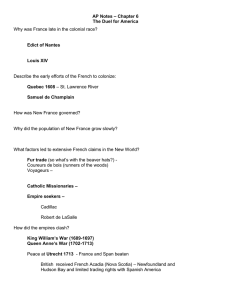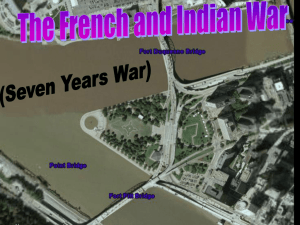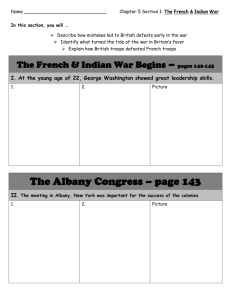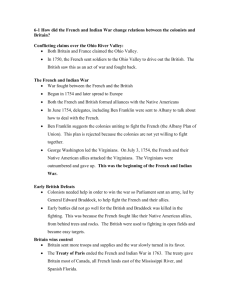The Seven Years War
advertisement
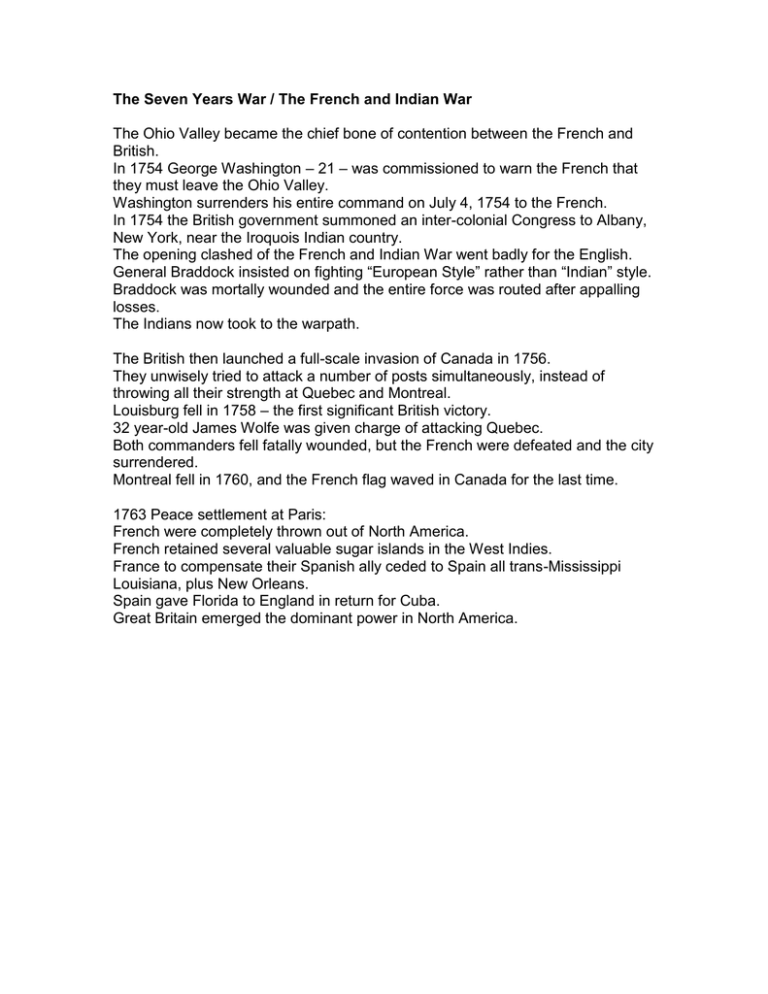
The Seven Years War / The French and Indian War The Ohio Valley became the chief bone of contention between the French and British. In 1754 George Washington – 21 – was commissioned to warn the French that they must leave the Ohio Valley. Washington surrenders his entire command on July 4, 1754 to the French. In 1754 the British government summoned an inter-colonial Congress to Albany, New York, near the Iroquois Indian country. The opening clashed of the French and Indian War went badly for the English. General Braddock insisted on fighting “European Style” rather than “Indian” style. Braddock was mortally wounded and the entire force was routed after appalling losses. The Indians now took to the warpath. The British then launched a full-scale invasion of Canada in 1756. They unwisely tried to attack a number of posts simultaneously, instead of throwing all their strength at Quebec and Montreal. Louisburg fell in 1758 – the first significant British victory. 32 year-old James Wolfe was given charge of attacking Quebec. Both commanders fell fatally wounded, but the French were defeated and the city surrendered. Montreal fell in 1760, and the French flag waved in Canada for the last time. 1763 Peace settlement at Paris: French were completely thrown out of North America. French retained several valuable sugar islands in the West Indies. France to compensate their Spanish ally ceded to Spain all trans-Mississippi Louisiana, plus New Orleans. Spain gave Florida to England in return for Cuba. Great Britain emerged the dominant power in North America.

